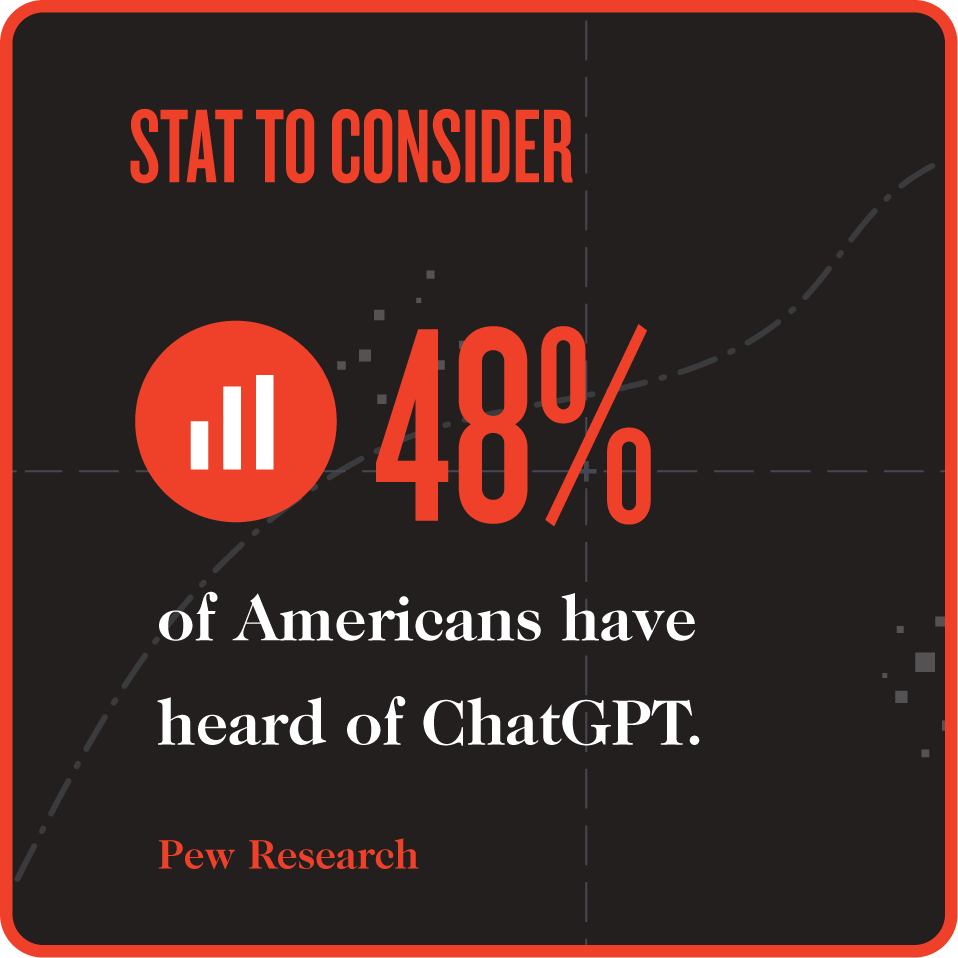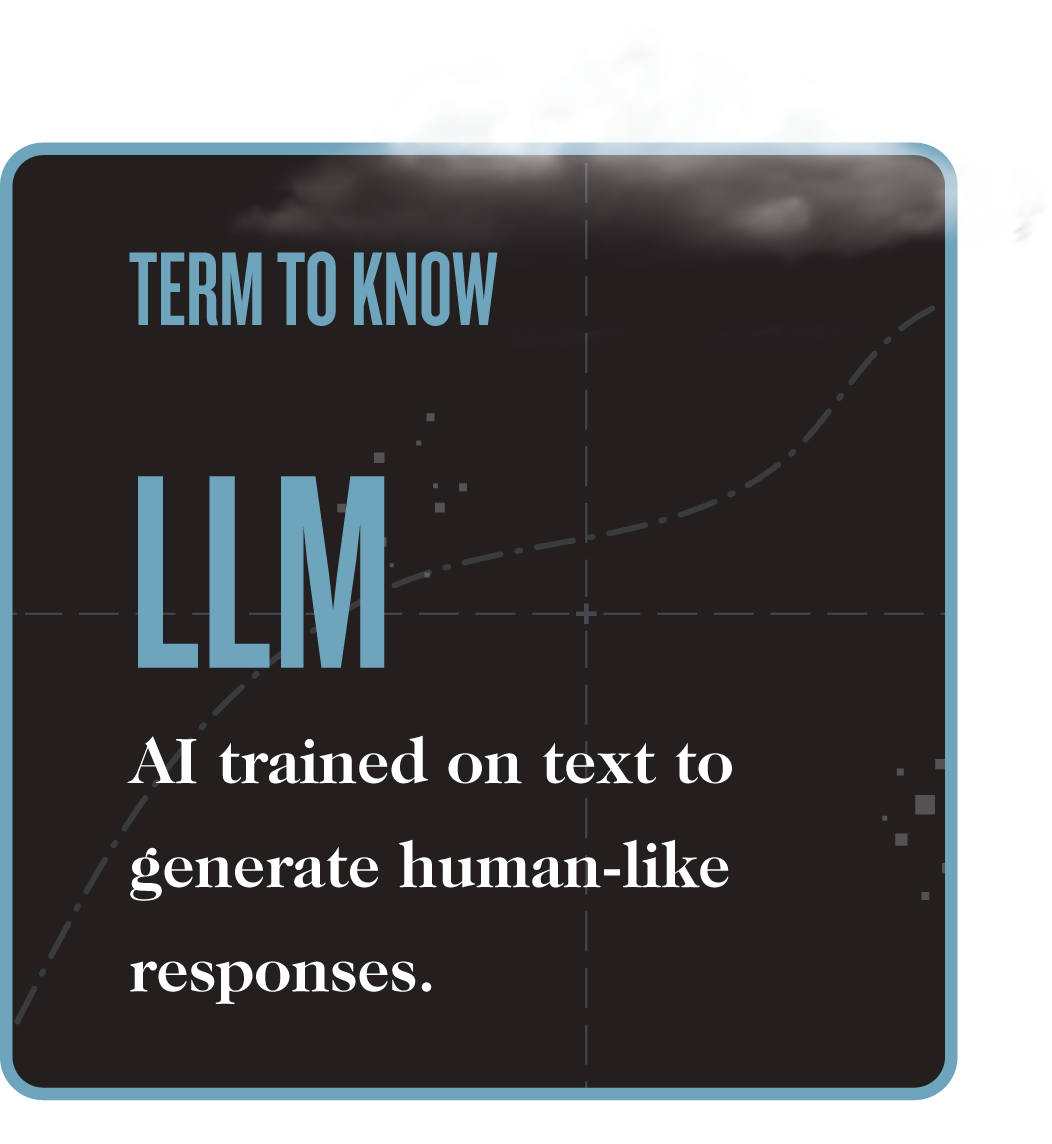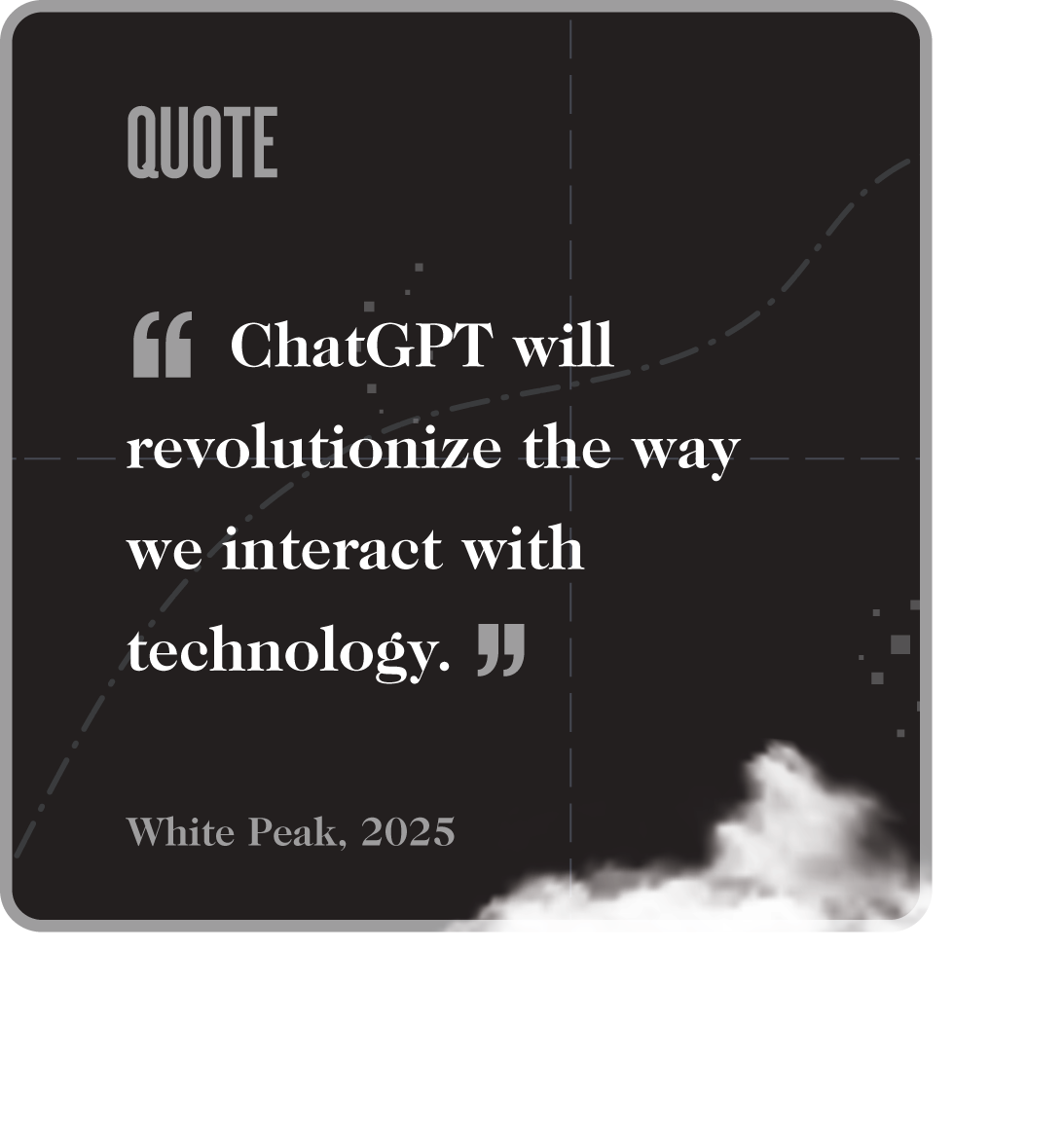You’ve probably noticed it yourself. You run a Google search like you always have, but your eyes go straight past the list of blue links and toward the AI-generated insight box at the top. Whether Google calls it an “AI Overview,” Gemini offers a conversational reply, or ChatGPT spins up a summary — the behavior is the same. We’re letting the machine give us the answer first, and only sometimes scrolling further.
That shift is more than a habit change. It’s a fundamental change in visibility.
A Lunch Conversation That Reinforced It
Not long ago, I was having lunch with a prospect. As I often do, I asked, “How did you find us?”
I expected the usual: a Google search, a LinkedIn referral, or maybe word-of-mouth. Instead, he answered: “ChatGPT. And I also saw you mentioned when I asked Gemini.”
I wasn’t blindsided — I already suspected this was happening. But hearing it confirmed by a live prospect underscored what’s at stake. The discovery path for clients, students, donors, and consumers is changing, and it’s happening faster than most organizations are preparing for.

The Data Backs Up What You Feel
- 58% of U.S. adults encountered at least one Google search last month where an AI summary appeared. And when AI summaries show up, people are less likely to click links below. (Pew Research Center, 2025)
- 61% of Gen Z and 53% of Millennials say they’re using AI tools like ChatGPT and Gemini instead of traditional search engines for at least some queries. (Search Engine Land, 2025)
- WhitePeak reporting shows that brand citations in LLM outputs are quickly becoming as valuable as traditional search clicks for measuring visibility.
Brands Already Winning in the LLM Era
Here’s what’s telling: the brands surfacing most reliably in AI answers aren’t necessarily the ones that mastered backlinks. They’re the ones that publish trustworthy, structured, and consistent information.
- Mayo Clinic: Their health pages show up again and again in ChatGPT and Gemini answers.
- Harvard Business Review: AI models pull heavily from HBR when you ask about leadership or management.
- Investopedia: Financial definitions and FAQs are cited constantly.
- National Geographic: Science and environment questions almost always include them.
The Framework: How to Position Yourself for LLM Search
If you’re wearing the marketing hat — CEO, CMO, or Director of Marketing — here’s what matters:
- Publish Authoritative, Useful Content
- Strengthen Your Digital Footprint Beyond Your Website
- Structure Your Knowledge
- Watch Multiple Platforms, Not Just ChatGPT
- Change Your Measurement Lens

Here’s What to Talk to Your Web Developer About
- Schema markup (FAQ, definitions, product/service metadata)
- Site architecture: Crawlable, logical, no orphaned pages
- Robots.txt settings: Don’t block LLM-friendly bots
- Mobile optimization
- Semantic HTML: proper headings and tags
- Load speed
- Clean metadata: title tags, descriptions, alt text

Quick Wins for Leaders
- Run a visibility test in ChatGPT and Gemini
- Audit content for clarity
- Earn at least one guest article/interview per quarter
- Align marketing and dev teams around AI visibility
Bringing It Back to You
If you’re responsible for marketing, you don’t need to overhaul everything overnight. But you can’t treat this shift as background noise either. The way people are finding businesses, schools, and nonprofits is changing, and it’s moving toward AI-powered discovery layers.
The organizations that win will be the ones that:
- Publish content people actually learn from
- Earn credibility beyond their own site
- Structure their knowledge for easy reuse
- Monitor visibility in LLMs alongside traditional SEO
It’s not about chasing a trend. It’s about staying visible where people are already looking.


